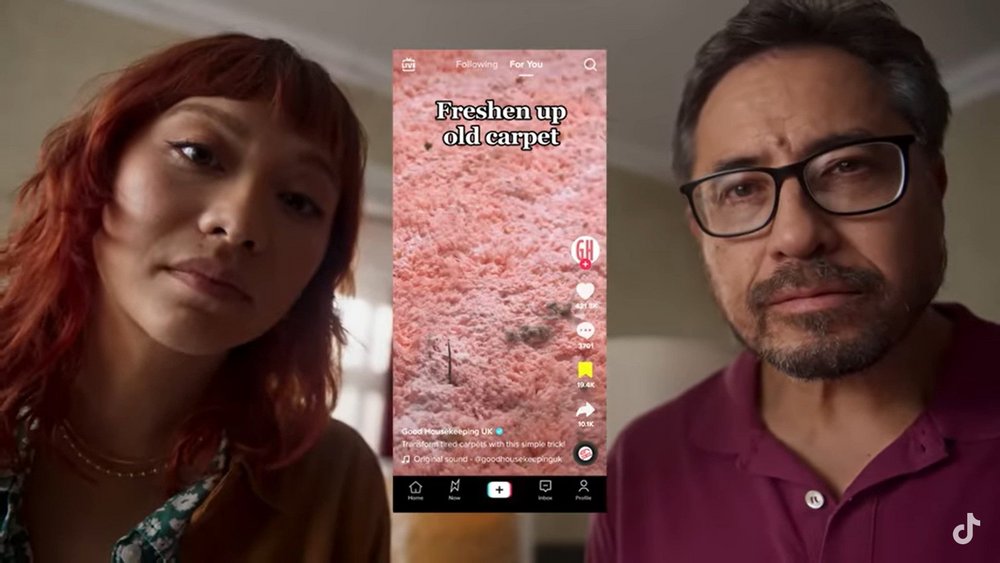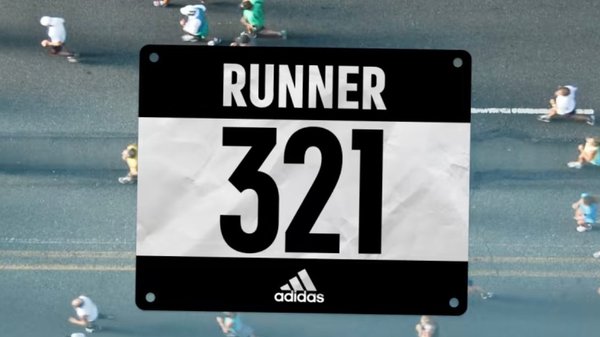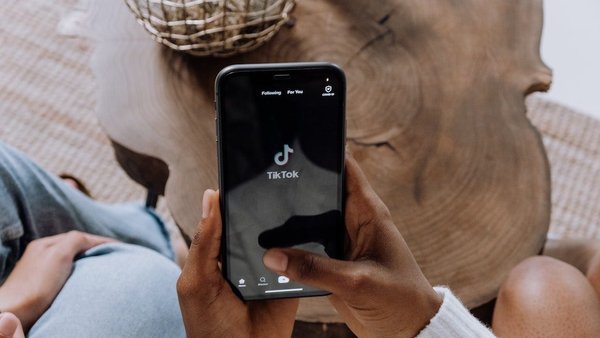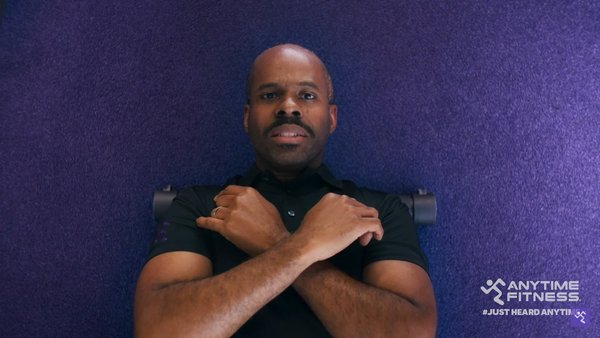TikTok’s ‘Search It’ ad and Google’s engine trouble /
TikTok’s new UK ad draws people’s attention to its search function – and ours to Google’s waning dominance
James Swift
/
TikTok has already put Facebook onto the back foot; is the video-sharing platform now coming for Google?
In December TikTok released a multimedia campaign in the UK that positions the app as a search tool.
The minute-long ad, which was created by Mother London, shows a daughter helping her father settle into a new home by searching TikTok for tips on cleaning carpets, hanging pictures, and things like that.
When TikTok first started to do brand advertising, it concentrated on telling people that it was a great place to be entertained or establish yourself as an entertainer. Later campaigns, like #TikTokTaughtMe, did talk about the platform’s instructional content, but there was nothing about how to search for that information. In fact TikTok’s point of difference was that you didn’t need to search for anything. Its algorithm figured out what you liked and then gave you more of it.
It’s easy to see why TikTok might want to talk about search now, though. It’s a new way to talk about the app that might appeal to people who up until now had decided that TikTok is not for them, and it’s also a new consumption occasion that may increase the (already considerable) amount of time that existing users spend on the app each day.
The other thing about the campaign is that it’s true. People really are using TikTok to search for certain kinds of information, and at least some of them are doing it because they are not getting what they need from Google.
People have been griping about Google for years, but in 2022 the idea that the internet’s dominant search engine was perhaps starting to fall out of favour really took root.
The basic argument is that Alphabet (which owns Google) got too greedy and crammed too many sponsored articles and plugs for its own products into its search results pages, which has made it less useful.
Prabhakar Raghavan, Google
There may be more to it than that, though. An SEO expert quoted in The Atlantic said that while Google’s algorithm had got better at intuiting our intentions and at filtering out bad or low-quality content, this has had the unintended effect of making the search engine feel more sterile and less interesting.
Whatever the cause, the effect is the same, and the point is that now people have more options when it comes to searching for what they need online. Amazon has long been a go-to source for product information. Engineer Dmitri Brereton wrote in February about how people were appending ‘Reddit’ to their Google searches because they found more useful information on the discussion site. And The New York Times wrote in September about how TikTok was starting to nibble at Google’s lunch.
Even Google recognises it has a problem. At a conference in July 2022, Google SVP Prabhakar Raghavan told his audience that, ‘In our studies, something like almost 40 percent of young people, when they’re looking for a place for lunch, they don’t go to Google Maps or Search. They go to TikTok or Instagram.’
In response, Google has introduced new features to its search and map tools to attract younger people, like the ‘neighbourhood vibe’ function, which attempts to give users an understanding of the character of an area through videos, images and reviews.
But the challenges and challengers are coming fast. Earlier in the year The Information reported that Microsoft was planning to incorporate the same technology behind OpenAI’s natural-language processor, ChatGPT, into its Bing search engine, to provide conversational responses to queries rather than a series of links.
True, Alphabet has invested a lot of time and energy into artificial intelligence research, too – its LaMDA chat bot convinced an engineer that it was real – but it also has a strong financial incentive to keep showing people as many links as possible in its search results. Google is the incumbent now and it is likely to behave more conservatively as a result.
Google’s huge lead in search means that not likely in any kind of immediate danger. Statcounter says that 92.58% of searches were still conducted through Google between December 2021 and December 2022. And any company that does manage to steal market share from Google will have to find new ways to monetise that attention or risk frustrating its audience in exactly the same way and giving away its advantage.
But all the stories about people looking for new ways to search for information online do amount to something. Google doesn’t feel quite so invulnerable as it did even two years ago, and that is significant by itself.
Want more of the same? /
We don’t just write about best-in-class campaigns, interviews and trends. Our Members also receive access to briefings, online training, webinars, live events and much more.







